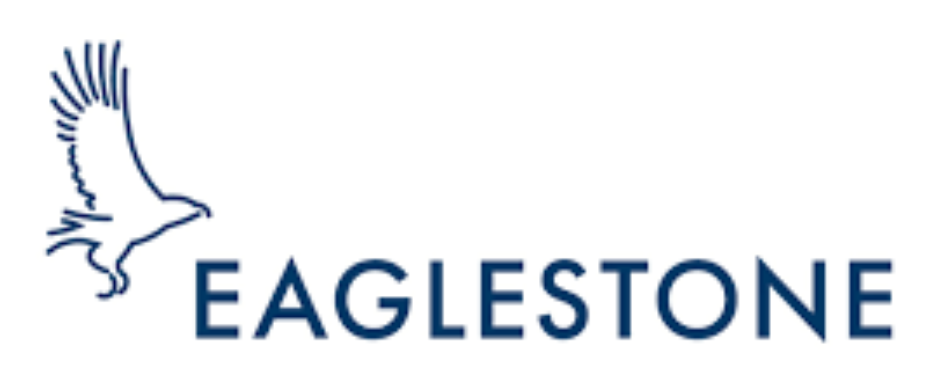My experience as a Real Estate Analyst at Eaglestone
In this article, Arthur EVERARD (ESSEC Business School, Master in Finance Program – Master in Finance, 2023-2024) shares his professional experience as a Real Estate Analyst at Eaglestone, a Belgian real estate developer operating in Europe.
About the company
Eaglestone is a real estate developer based in Brussels, Belgium and focused on commercial and residential projects across Europe. Founded in 2014, Eaglestone has already developed over €1 billion in real estate assets including office buildings, hotels, apartments and more. The company currently has around 15 ongoing projects spread across major cities like Brussels, Amsterdam, London and Lisbon. Eaglestone’s business model involves identifying promising development opportunities, securing financing, overseeing construction, and managing/leasing the completed properties.
Logo of Eaglestone.

Source: the company.
My internship and missions
During my two-month internship at Eaglestone, I worked on several key projects. I compiled and presented detailed analyses on new London, Lisbon and Brussels investment opportunities (development for offices and residential buildings) to the CEO, including market overviews and financial projections. I visited three ongoing construction sites in Brussels to assist with leasing and sales strategies. Additionally, I reviewed financial models for major projects and provided input on funding options like special purpose vehicles (SPVs) and bullet loans (similar to zero-coupon bonds) to support Eaglestone’s equity and debt needs.
Required skills and knowledge
During my internship, I improved vital hard and soft skills. For hard skills, I honed my Excel modeling for feasibility analysis, project financing and timelines. I also gained PowerPoint presentation experience. Regarding soft skills, I improved at working independently, time management, public speaking and presenting to executives. Additionally, I learned enormously about real estate development operations and strategies. I became comfortable presenting analysis and recommendations to senior leadership. The experience provided me with tangible skills and invaluable exposure to the world of real estate finance.
What I learned
The overview of Eaglestone and my internship experience highlights skills and knowledge applicable to real estate finance and development roles. Understanding how to assess new opportunities, project costs and returns, and different funding sources provides useful perspective for those interested in real estate or project finance analyst positions. The work I completed, and metrics analyzed are directly relevant to finance departments at real estate companies.
Financial concepts related my internship
Three important financial metrics for real estate are return on investment (ROI), cash-on-cash return, and gross rent multiplier. ROI measures the profitability of an investment as a percentage of the total cost. Cash-on-cash return indicates the annual income generated by a property as a percentage of the total cash invested. Gross rent multiplier shows the relationship between purchase price and potential rental income. Tracking these metrics allows developers like Eaglestone to evaluate opportunities, fund projects strategically, and maximize ongoing returns. They provide vital insights into real estate investment performance.
Return on Investment
ROI measures the profitability of an investment as a percentage of the total investment (assets on the balance sheet). It is calculated by dividing net profit by total cost. ROI is useful for comparing different real estate opportunities, as it shows the potential profit per dollar invested. A higher ROI indicates a more profitable investment. Tracking ROI helps developers like Eaglestone allocate capital by comparing projects.
Cash on Cash Return
Cash-on-cash return shows the annual pre-tax income generated by a property as a percentage of the total cash invested. It provides a clear picture of the annual return. Cash-on-cash return demonstrates the ability to recoup the initial investment through ongoing rental or sale income. Real estate investors use this metric to evaluate the short-term returns on a project.
Gross Rent Multiplier
Gross rent multiplier compares the purchase price of a property to the potential annual rental income. It is calculated by dividing the purchase price by the annual rent. A lower gross rent multiplier means the property is more affordable based on the expected rents. This metric helps assess if the acquisition price for a development is appropriate given the usual market rents (used as a benchmark). It is an important consideration in the initial viability of a project.
Example
Please find below an Excel file to illustrate the three concepts above: return on investment (ROI), cash-on-cash return, and gross rent multiplier.
Why should I be interested in this post?
The overview of Eaglestone and my internship experience highlights skills and knowledge applicable to real estate finance and development roles. Understanding how to assess new opportunities, project costs and returns, and different funding sources provides useful perspective for those interested in real estate or project finance analyst positions. The work I completed, and metrics analyzed are directly relevant to finance departments at real estate companies.
Related posts on the SimTrade blog
▶ All posts about Professional experiences
▶ Clément KEFALAS My experience of Account Manager in the office real estate market in Paris
▶ Ghali El KOUHENE Asset valuation in the real estate sector
Useful resources
Creating tomorrow’s city together – Eaglestone
About the author
The article was written in December 2023 by Arthur EVERARD (ESSEC Business School, Master in Finance Program – Master in Finance, 2023-2024).



Pingback: - SimTrade blogSimTrade blog